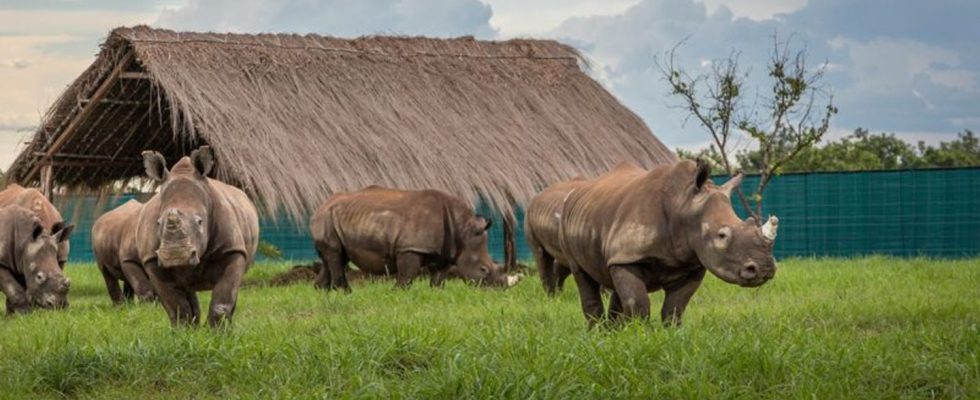natural reserve
Resettlement: White rhinos return to Congo
The rhinos arrive in Garamba. photo
© Martin Van Rooyen/African Parks/dpa
16 rhinos have been relocated from a national park in South Africa to one in the Democratic Republic of the Congo.
For years, white rhinos were considered extinct in the Democratic Republic of the Congo – now 16 animals have been resettled in the East African country. As the nature conservation organization African Parks announced on Saturday, the rhinos were resettled by plane from a national park in South Africa to the Garamba National Park in the north of the East African country.
The national park on the border with South Sudan is of particular historical importance. The last northern white rhinos, a subspecies of white rhinos, were sighted here in the wild about 15 years ago. The subspecies is now considered functionally extinct, as only two female specimens exist. Of the second subspecies, the southern white rhinos, there are still around 16,000 specimens. These were originally native to Zambia and South Africa. In the meantime, however, there are larger populations, especially in Kenya, after successful resettlement. The 16 new animals in Garamba Park also belong to the southern subspecies.
African Parks is working on the resettlement with the Congolese Institute for Conservation of Nature (ICCN), which is responsible for the preservation and protection of Congo’s national parks. If the resettlement is successful, around 70 animals are to be resettled in the Garamba National Park in the coming years – making the project the largest rhino resettlement ever.
The resettlement will cost a total of around four million US dollars (3.7 million euros). With the spread of the species on the continent, African Parks hopes that the chances of survival for the animals will increase again. In Africa, hundreds of rhinos are killed every year for their horn. In South Africa, the animals are particularly endangered. International trade in rhino horn is banned, but in Asia, particularly Vietnam and China, horn is popular as an ingredient in traditional medicine and lucrative.

